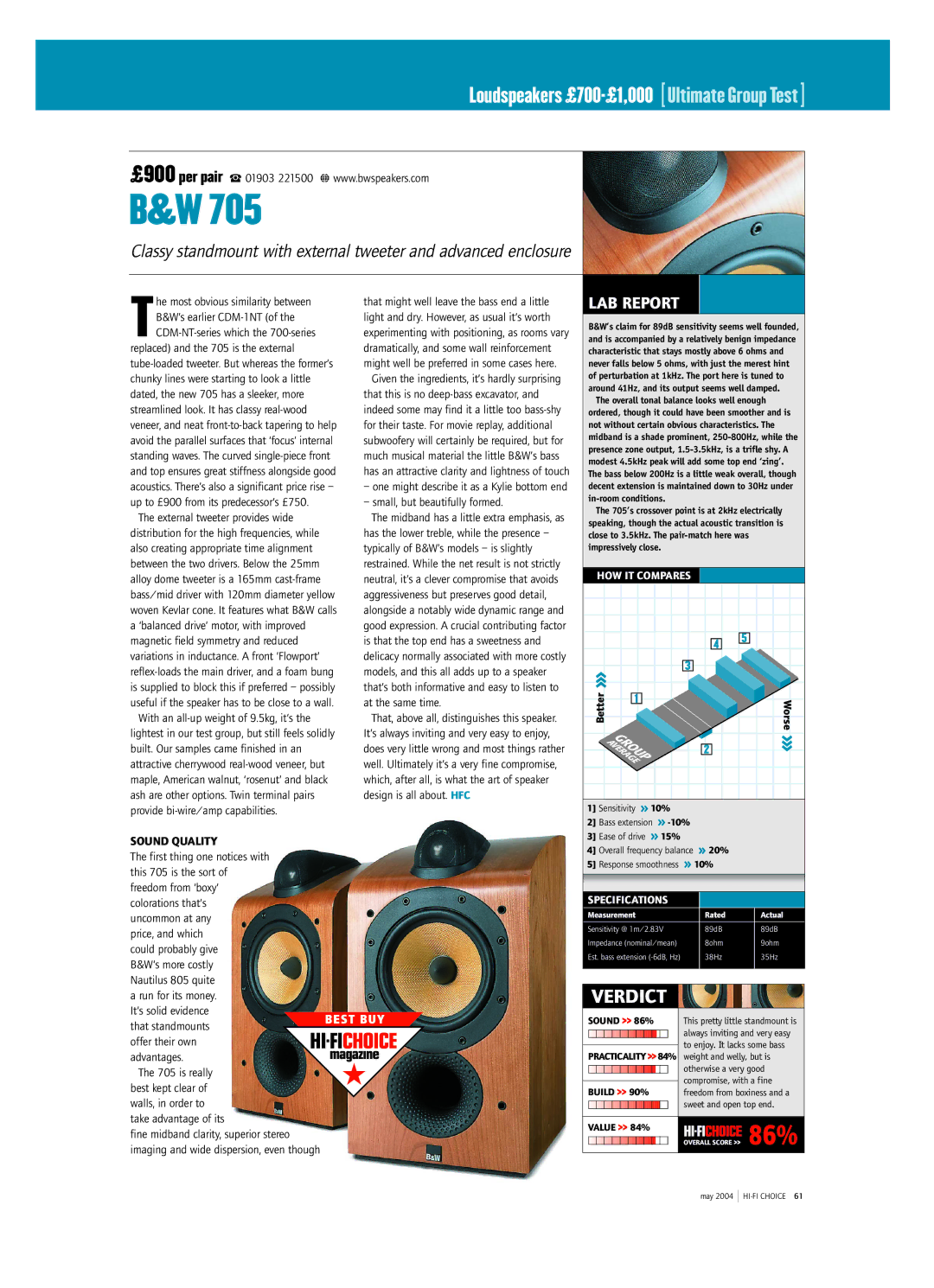705 specifications
The Bowers & Wilkins 705 stands as a remarkable entry in the world of high-fidelity audio, blending sophistication with exceptional sound quality. This standmount speaker is part of the company's 700 Series, renowned for its precise engineering and signature Bowers & Wilkins sound.A standout feature of the 705 is its innovative double dome tweeter. This technology enhances the listening experience by providing a more open and natural sound with extended high frequencies. The tweeter is housed in a stylish housing that minimizes resonance, ensuring that clarity is maintained even at high volumes. This sophisticated design allows the listener to appreciate the subtle nuances in music, from the delicate shimmer of cymbals to the breathy textures of vocals.
The 705 also utilizes a custom-designed midrange driver, which is crafted to deliver rich, detailed audio reproduction. The midrange is crucial in music performance, as it encompasses a wide range of frequencies and facilitates well-structured soundstage imaging. The driver is engineered with advanced materials to ensure that it remains lightweight yet incredibly rigid, effectively reducing distortion and enhancing transient response.
Moreover, Bowers & Wilkins employs a museum-grade cabinet construction that not only accentuates its aesthetic appeal but also serves an important acoustic function. The cabinet's internal bracing and custom damping materials help to minimize unwanted resonance, resulting in a purer sound. The matte finish and elegant profile of the 705 make it a visually striking addition to any home audio setup.
The speaker’s performance is further elevated by its compatibility with the company's proprietary Continuum cone technology. This innovation helps to deliver a transparent and consistent sound across all frequencies, ensuring that audio reproduction feels seamless and coherent.
In terms of connectivity, the 705 is designed with flexibility in mind. It can be paired with a range of amplifiers, making it suitable for various audio setups. Whether used in a stereo configuration or as part of a home theater system, the 705 promises an immersive audio experience.
Bowers & Wilkins has meticulously crafted the 705 to appeal to audiophiles who seek both form and function. With its combination of innovative technologies, elegant design, and outstanding sound quality, the 705 stands as a testament to the brand's legacy in high-fidelity audio. This speaker not only captures the heart of music but also enhances the overall enjoyment, making it a worthy addition for any serious music listener.

